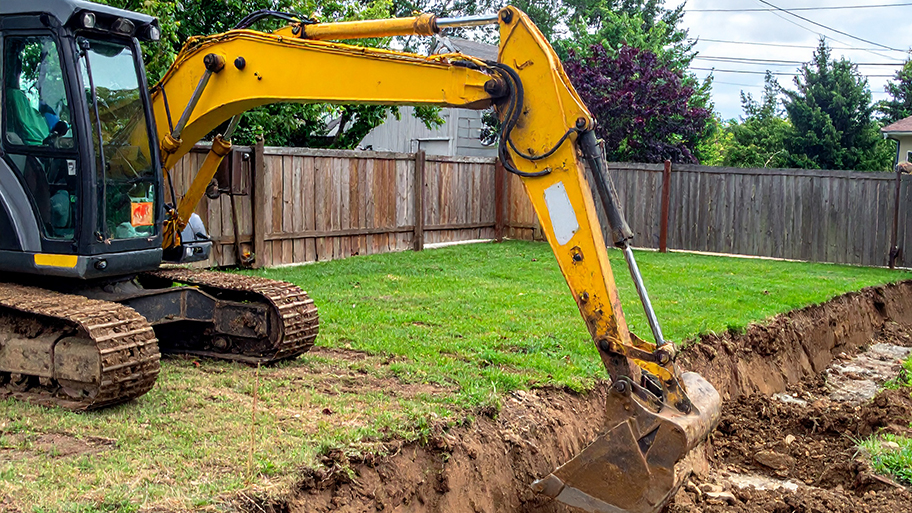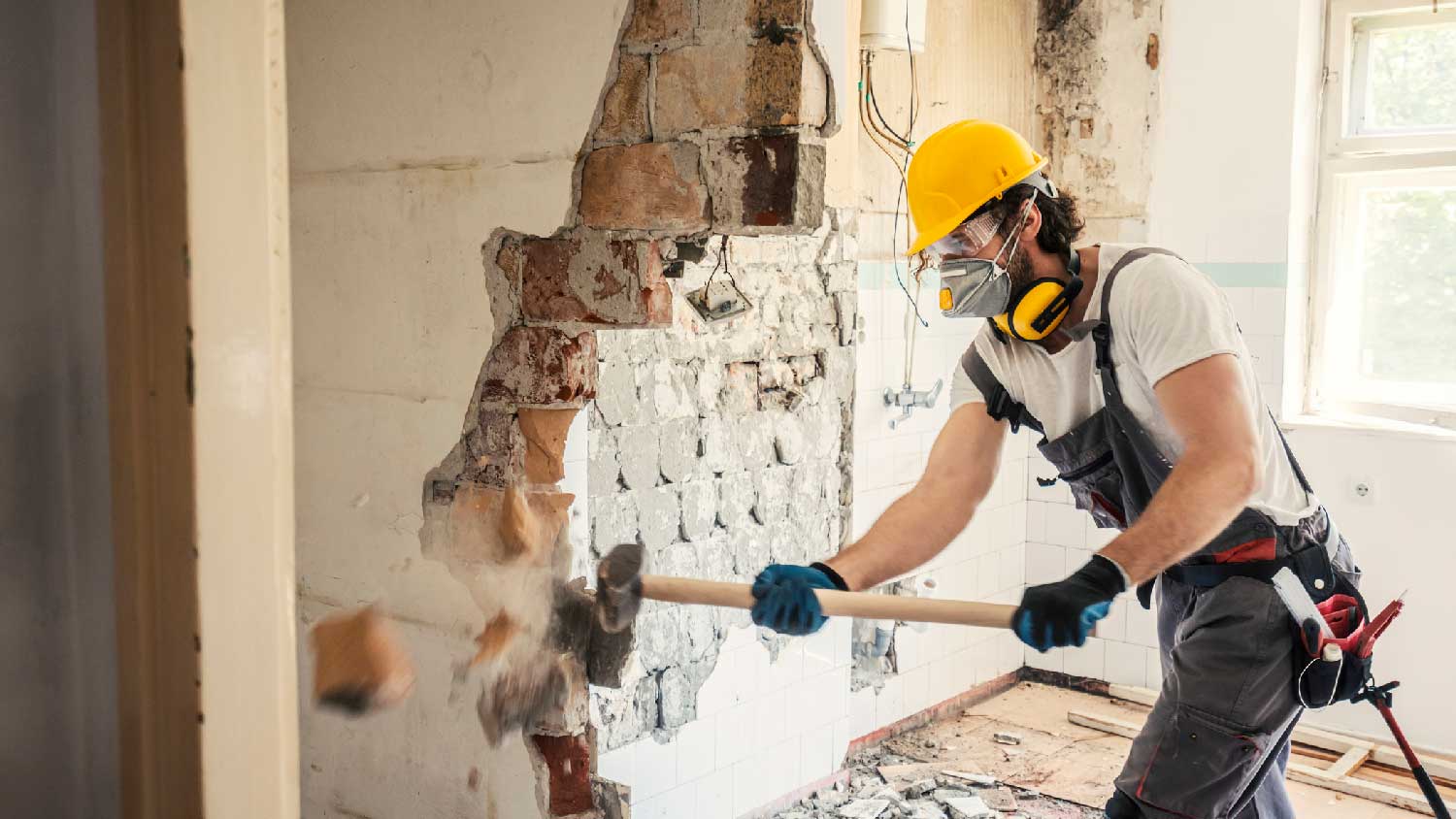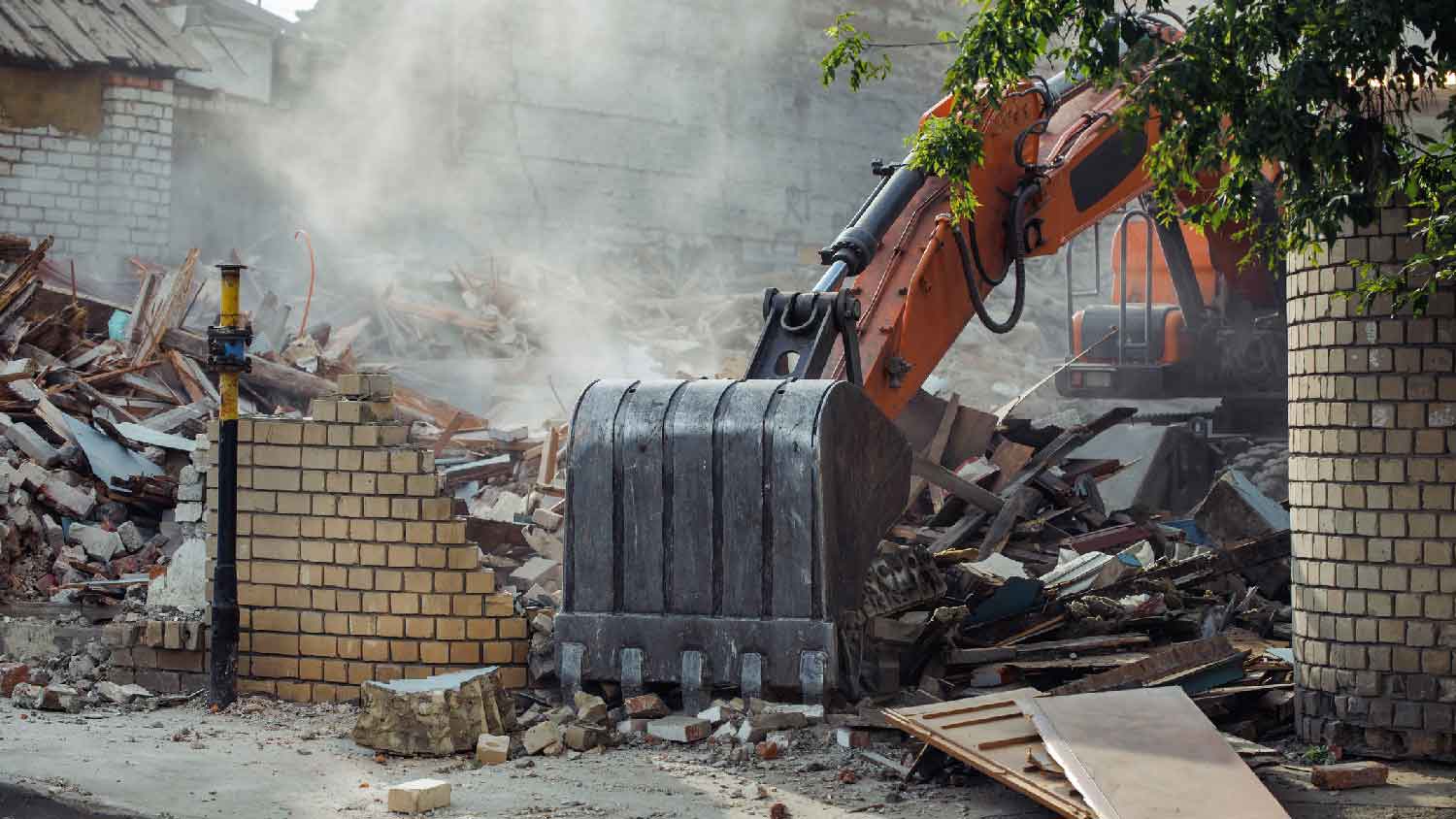
Digging a trench is usually the first step in a larger home project. Our trenching cost calculator breaks down the factors that affect the price tag of this job.
Clearing a path so that you can crush your next renovation project


Demolition work involves safely tearing down structures with specialized equipment.
This work occurs in renovations, new developments, and removing unsafe structures.
Manual, high-reach, and explosive methods are common in demolition projects.
Inspection, planning, permitting, and site prep are all crucial before demolition begins.
When it comes to large-scale home renovations or rebuilds, one of the most crucial aspects is demolition work. But what is demolition work, and when is it needed? Whether you're planning to tear down a wall to expand your living room or you’re taking on a more extensive building project, demolition is often the first step in turning your vision into reality. Let’s walk through the process, costs, and types of demolition so that you can plan and budget effectively.
Demolition work is the process of safely tearing down buildings, structures, or parts of structures using specialized techniques and equipment. Whether it's for remodeling, repairing, or completely clearing a site, demolition is controlled destruction that makes way for new developments. In simpler terms, demolition is about deconstructing buildings while keeping safety, efficiency, and environmental responsibility in mind.
Demolition work is required for a wide range of projects, from simple home improvements to complex construction undertakings. Some common reasons for demolition include:
Home renovations: Knocking down a non-load-bearing wall to create open spaces or expand rooms is a common home renovation project involving demolition.
Unsafe or damaged structures: Buildings or parts of buildings that have become unsafe due to age, weather damage, or other factors may require demolition to avoid risks.
Property redevelopment: When older structures need to be removed entirely to make way for new construction, demolition is essential.
Whether you're demolishing a small part of a home or tearing down a large building, having a clear plan in place is critical for ensuring that the process goes smoothly.

There are several methods used to demolish buildings and structures, but they fall into three main categories. These methods vary in complexity and are chosen based on factors like the structure’s size, location, and materials.
Manual demolition involves using hand tools and small machinery to take down parts of a structure piece by piece. It's the go-to method for smaller projects or areas where precision is required, such as removing a single wall or structure in a home renovation.
High-reach demolition is commonly used for taller structures or buildings that can't be brought down using simpler methods. This technique involves specialized machinery that has long arms and attachments that can reach the upper floors of a building. These machines pull down materials such as concrete, steel, and other components from the top down.
Explosive demolition is the fastest way to bring down large structures, but it requires careful planning and years of expertise. Pros place explosives in key structural points of a building and set them off, causing the structure to collapse in a controlled manner. (BTW—This type of demolition is definitely NOT DIYable.)
Demolition is a step-by-step process that involves careful planning and execution. Here's a breakdown of how a demolition pro near you might approach your project:
Inspection and planning: Professionals will inspect the site and create a demolition plan, considering factors like structural integrity, materials, and safety requirements.
Permitting: Before demolition begins, your demolition pro must get the proper permits from local authorities.
Preparation: The site is prepped by disconnecting utilities like electricity, gas, and water to ensure safety.
Demolition execution: Depending on the method chosen, the demolition process begins.
Clean-up and disposal: After demolition, your contractor will clear out all of the debris, and they can separate any recyclable materials from the waste for disposal.

The cost of demolition work varies significantly based on several factors. On average, the cost to demolish a house can range from $6,000 to $25,500, depending on the project's scale and complexity. On the other hand, demolition work that just removes a few interior walls to open up your space costs $1,200 to $5,000.
Key factors that influence the cost include:
Type of demolition: Manual demolition is less expensive than high-reach or explosive methods.
Age of the home: Older homes may contain hazardous materials like asbestos, which require special removal, increasing costs.
Project difficulty: Factors like site accessibility, proximity to other buildings, and size of the structure can all impact the final price.
Waste disposal: The cost of removing and disposing of debris is factored into the total demolition cost.
While it’s tempting to consider DIY demolition as a way to save money, this type of project requires specialized skills and equipment that most homeowners don't possess. Demolition work is inherently dangerous, with risks of personal injury, property damage, or death if not performed correctly.
When it comes to demolition projects, if it looks too big to do on your own, it is.
— Josh Rudin, Owner of ASAP Restoration LLC, Tempe, Arizona
Hiring a professional demolition team ensures that the job is done safely, efficiently, and in compliance with local regulations.
From average costs to expert advice, get all the answers you need to get your job done.

Digging a trench is usually the first step in a larger home project. Our trenching cost calculator breaks down the factors that affect the price tag of this job.

How much does it cost to demolish a house? Average prices for demolition vary based on home size, materials, and location. A partial demolition can make a project more affordable than a full house demolition. Keep reading for more.

If you need to dig a trench, you might be tempted to do it yourself instead of hiring a pro. So, how much does it cost to rent a trencher? Let’s break it down.

Who installs trench drains? A local excavation company is best for the job, but a landscaper or plumber can also get it done. Here's how.

You’ll need to estimate demolition waste to rent dumpsters or trucks for hauling it away. Learn how to calculate demolition debris with this guide.

Digging a trench can take two to 12 hours, depending on the tool and soil type. Learn how long it takes to dig a trench and how to speed up the project.